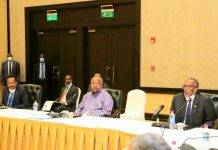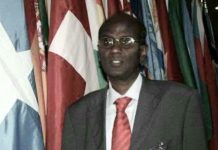Mogadishu (UM) – It is welcome news that this Government will finally undertake the crucial civil service reforms promised from 2012 by the former administration by advertising all the Permanent Secretary and Director positions within the Federal Government. Prime Minister Hassan Ali Khaire’s announcement last month of this very news instills hope in many who have been eagerly awaiting much needed reforms within the civil service.
The Somali civil service is not for purpose. What ought to be the guiding light of socio-economic reforms and the main vehicle pulling political stability and guiding institutional development is underfunded, poorly staffed and senior appointments are rife with tribal and political appointees serving unknown interests. The only competitively filled post for a Permanent Secretary since the collapse of the Somali Central Government in 1991 was at the Ministry of Foreign Affairs in 2015 under former Foreign Minister Dr. Abdusalam Omer. Since then there has been much discussions of merit based civil service appointments but very little progress has been made at the top.
The Civil Service Commission has improved its recruitment processes slightly and with the internationally financed Capacity Injection Program there are a small number of civil servants of all ranks who are employed competitively. However, these positions are few and the vast majority of appointees are still clan based.
Somalia needs a strong, disciplined and innovative bureaucracy which leads and oversees national development. Somalia is only now slowly recovering from a destructive near two decade civil war which saw the dispersal of valuable talent across the globe. This dispersal and the ensuing civil war decimated the capabilities of the Somali Government and its institutions ability to deliver for its people. This painful legacy of complete failure must not be maintained in this time of recovery by poor judgment and leadership at the heart of Government.
The Somali Federal Government has a duty to serve its people. Delivering security, economic development and public services are first and foremost in the new Government’s ambitious policy programs. However, with poor public institutional leadership, this will remain a mere slogan and dream. The Federal Government has shown willingness for reform for the betterment of the Somali people.
Already some the senior leadership of certain Ministries including, Information, Education and Interior have been sacked for poor performance and an inability to work with the new Ministers. This is a clear message that has been well received by the Somali people. Now, these individual actions must be complemented with wholesale reform at the top of public institutions that has already been announced by the Prime Minister.
The Somali civil service appointments are heavily politicized and public institutional leaders who seek to play politics should stand in elections rather than distort national progress with their own agendas.
Fulfilling the public interests requires a strong commitment to a new civil service code built on the values of neutrality, public service and national development. Those who do not embody these values must not be allowed to lead our public institutions.
Nabad and Nolol can be achieved but only by competent political and bureaucratic leadership coupled with public support. The meritocratic appointment of institutional leaders is a huge step in the right direction to achieving all of these.



























